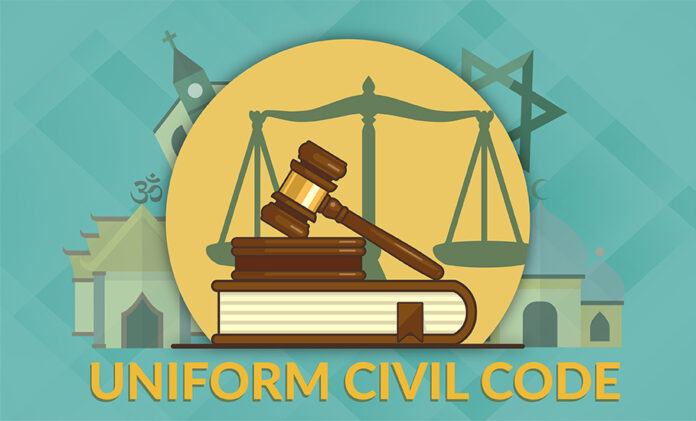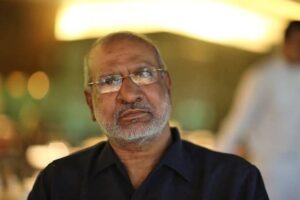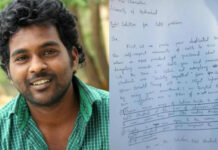— MOHAN GURUSWAMY —
The comer stone of a democratic society is equality. Everything that characterises a democracy flows from this notion of equality. Without equality, there can be no justice, just as without justice there can be no equality. True justice cannot be based on unjust laws, though it is possible to have a law-abiding society even with the most unjust laws in place. Just laws are a pre-requisite for a democratic society and, therefore, a just and orderly society. The concept of justice also changes with the dynamics of the age and the period. Laws evolved and deemed sacred in more primitive times cannot continue to be considered so, if they do not satisfy the conditionalities of the doctrine of equality.
On this, John Rawls writes: “Laws and Institutions on matter, however, efficient and well arranged must be reformed, or, abolished if they are unjust.” In his celebrated work ‘A Theory of Justice’, Rawls propounds that every person possesses an inviolability founded on justice that even the welfare of society as a whole cannot override. As such, justice denies that this loss of freedom for a few is made right by a greater good shared by others. It does not allow that the sacrifice imposed on a few are outweighed by the larger sum of advantages enjoyed by many. Therefore, it follows that in a just society the liberties of equal citizenship are taken as settled, the rights secured by justice are not subject to political bargaining or to the calculus of social interest.
Much of the legal argument by those still in favour of the existing system of separate personal laws on the basis of the existing system of separate personal laws, on the basis of religion and custom derive from the premise that “personal laws” are part and parcel of the freedom of religion guaranteed by Article 25 of the Constitution of India. This is despite the fact that Clause 2 of the same article specifically saves secular activities associated with religious practices from the guarantee of religious freedom.
Even so, personal laws are not laws under Article 13, and, therefore, do not have to conform to fundamental rights and the doctrine of equality enshrined in Article 14. But if personal laws were tested against the doctrine of equality under law, it will be found that a large number of them are unjust, arbitrary, and unconstitutional. It is this issue that we need to address, for it has a bearing on what kind of a society we are and will be.
While most of those who oppose a common civil code do so on the grounds that this is not the time as the Muslim community, spoken for by its self-declared leadership, is not ready for it. A theological argument has also been advanced, that these existing laws are God-given and, therefore, cannot be tampered with. The rationality of such an argument, and of the persons who advance them do not deserve any serious attention in this day and age.
All laws, even the eternal ones, are manmade and reflect the level of thinking and advancement of human knowledge and civilisation at that moment of time. If we have to accept what was evolved by law-givers like Manu in the period before the Gupta Empire or in medieval Arabia as sacrosanct, then we will forever be condemned to be governed by archaic, unequal and unjust laws. In the age of reason, the demand that people obey laws must be rooted in reason and not sentiment.
The task of modernization entails the destabilisation of many institutions. We, in the process of seeking to modernize India, have destabilised and uprooted many traditional institutions. We have destabilised the manner in which much of Hindu society was organized. We have destabilised the hierarchy of castes. Our modern lawmakers, Hindu and Muslim alike, have outlawed many discriminatory practices, apparently, ordained by Hindu religion and custom.
True, a good part of the impetus for these was provided from within the Hindu community. Unfortunately, given the dynamics of our domestic politics and the prevailing winds of islamic fundamentalism, it is unlikely that a similar impetus will be provided for the reform of Muslim society. Since the process of equalisation so essential for modernisation and development cannot be delayed, we cannot wait forever for a dynamic and; modern Muslim leadership to emerge. Sometimes, it does seem that given the dynamics of our politics and the past record of the Muslim community, the Northern India in particular, this kind of leadership may never emerge. islamic countries like Egypt, Indonesia and even Pakistan have taken many steps to reform their societies, and there is no reason why we cannot emulate them rather than given in to the obscurantist and obstructionist Muslim leadership we seem to recognize and legitimise in India.
Unfortunately, those who oppose the reform of personal laws are dictated by the calculus of electoral politics. It might also be true that those who are for the reforms are dictated by similar motives. Democratic politics is after all a competition for power. This does not mean that the issue cannot be judged on the basis of merit. This is what we need to do now.
The traditional objections of a uniform civil code harks back to the argument posed when the matter was debated in the Constituent Assembly. The two main objections then were that it would infringe on the fundamental right to freedom of religion guaranteed by Article 25, and that it would constitute tyranny of the majority.
The first objection is misconceived because the directive in Article 44 does not infringe the religious practices as stated under Article 25. As stated earlier, secular activities associated with religious practices are specifically saved from the guarantee of religious freedom.
The second objection would be valid, if the laws of one community were made incumbent on the rest. however, if a common set of laws for inheritance, marriage, divorce, custody, adoption and guardianship were to be framed with a special emphasis on gender equality which neither resembled any existing personal law nor sought to impose any one personal law on the rest, it would simply be a common and secular civil code.
Such a common and secular civil code, while not interfering with any of the rituals and many practices of the various religious and caste groups, would seek to merely legitimize the larger precepts of law that are being made secular. For instance, a Hindu from Kerala many marry his niece under the Marumakkathyam Law, whereas it would be decreed as a violable marriage for a Mitakshara Hindu. Under a common and secular civil code, the validity of a marriage would begun with the age of consent and end with a legitimate registration of certification by any authorised person or body such as a priest or locally elected officials or even traditional village elders.
By applying the doctrine of equality, all grounds of divorce, like adultery, desertion and cruelty, will be equally available to husband and wife.
Thus, if a concealed pregnancy by another man before marriage is a ground so will the concealed pregnancy of another woman by the man. If bigamy is to be a ground for divorce so will polyandry. Same with the case of homosexuality. Naturally, divorce by mutual consent will be allowed to the husband and the wife jointly.
A common and secular civil code will also then address the issues that make marriages void or voidable in a uniform manner. A void marriage is one which in law does not exist. A voidable marriage is one that exists legally, and can only be annulled by a court of law. Grounds for making a marriage void can be concealed impotence, or if the proposed marriage is bigamous or polyandrous, or where consent is fraudulently obtained. Grounds for making a marriage viodable could be when the marriage is not consummated or the bride is pregnant by someone else and of which the husband is unaware.
When the equality doctrine prevails, it will entail that in matters of maintenance and alimony, it will become the duty of the spouse with the greater or only income to maintain the other. A similar application of the doctrine on the questions of inheritance, maintenance of children, custody and guardianship and adoption will result in a dramatically different and more egalitarian social scenario.
It is this more equal society that all religious obscurantist fear most. Unfortunately, the political parties that profess to be secular and those who profess to oppose pseudo-secularism pander equally to obscurantists the most. That seems to be the real problem.


















